CAST/Participants
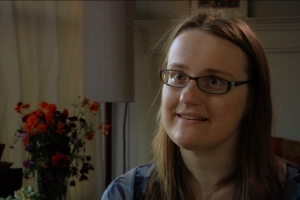
Dominika Bednarska
Writer, Performer and Scholar
Dominika Bednarska is a disabled femme queer academic, writer, performer and activist. She has a Phd English and Disability Studies at the University of California Berkeley. Her writing has appeared in What I Want From You: An Anthology of East Bay Lesbian Poets, Nobody Passes: Rejecting the Rules of Gender and Conformity and most recently in theBellevue Literary Review. She has performed at Girl Talk, the Marsh, CounterPULSE, Queer Open Mic, Femme Con, Butch Voices, the Society for Disability Studies Annual Conference, and the Knitting Factory in NYC.
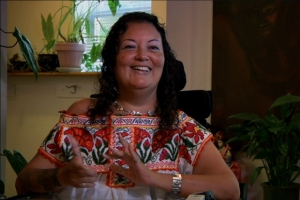
Patty Berne
Disability Justice Educator
Patty Berne is the Co-Founder, Executive and Artistic Director of Sins Invalid. During the filming of Fixed, they were serving as Project Director on Race, Disability and Eugenics at the Center for Genetics and Society. Their professional background includes advocacy for immigrants who seek asylum due to war and torture; community organizing within the Haitian diaspora; international support work for the Guatemalan democratic movement; work with incarcerated youth toward alternatives to the criminal legal system; offering mental health support to survivors of violence; and advocating for LGBTQI and disability perspectives within the field of reproductive genetic technologies.
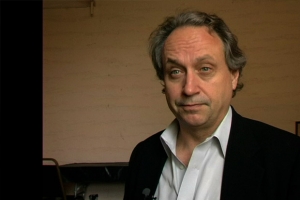
Rodney Brooks
Roboticist
Rodney Brooks is the Panasonic Professor of Robotics (emeritus) at MIT. He is a robotics entrepreneur and is currently the CTO and co-founder of Robust AI. Before that he was Founder, Chairman and CTO of Rethink Robotics (it ran from September 1st, 2008, through October 3rd, 2018, and was originally called Heartland Robotics). He is also a Founder, former Board Member (1990 – 2011) and former CTO (1990 – 2008) of iRobot Corp (Nasdaq: IRBT). Dr. Brooks is the former Director (1997 – 2007) of the MIT Artificial Intelligence Laboratory and then the MIT Computer Science & Artificial Intelligence Laboratory (CSAIL).
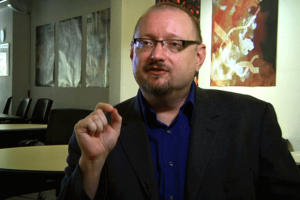
jamais cascio
Futurist and Writer
Selected by Foreign Policy magazine as one of their Top 100 Global Thinkers, Jamais Cascio specializes in the development of provocative scenarios of the future. His work appears in publications such as the Atlantic Monthly, the New York Times, and Foreign Policy. Cascio speaks about future possibilities around the world, and he has been featured in a variety of television programs on emerging issues. Cascio published his first non-fiction book, Hacking the Earth: Understanding the Consequences of Geoengineering in 2009, and is now at work on his second. Cascio serves as Distinguished Fellow at the Institute for the Future, and blogs at OpenTheFuture.com.
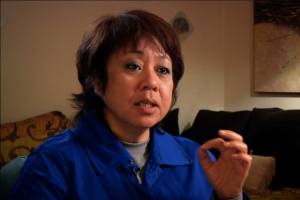
Fernanda Castelo
Test Pilot, Ekso Bionics
As a “test pilot,” Fernanda Castelo (1956-2020) helped Ekso Bionics refine their design for the “Ekso,” an exoskeleton which allows individuals with limited to no mobility in their legs to walk again. Fernanda worked closely with their engineers, and clinical physical therapists giving critical feedback from a user’s perspective. A dancer at Disneyland in her youth, after an accident 20 years ago, she has since consulted with multiple design teams on the development of new technologies for people with mobility impairments. She was also an avid sailor and very active with B.A.A.D.S. (Bay Area Association for Disabled Sailors).
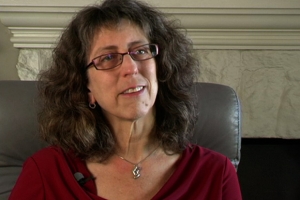
Marcy Darnovsky
E.D., Center for Genetics and Society
Marcy Darnovsky, PhD, Executive Director of the Center for Genetics and Society, speaks and writes widely on the politics of human biotechnology, focusing on their social justice and public interest implications. Her articles have appeared in The Nation, Democracy, Harvard Law and Policy Review, The American Interest, Alternet, Science Progress, The Journal of Life Sciences, Modern Healthcare, Contraception, Bioethics Forum, Tikkun and many others. She has appeared on dozens of television, radio, and online news shows and has been interviewed and cited in hundreds of news and magazine articles.
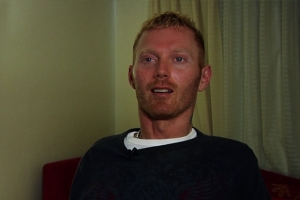
tim hemmes
UPMC Brain-Machine Interface experiment participant
Tim Hemmes is the first person to participate in a new trial assessing whether the thoughts of a person with spinal cord injury can be used to control the movement of an external device, such as a computer cursor or a sophisticated prosthetic arm. The project, one of two brain-computer interface (BCI) studies underway at the University of Pittsburgh School of Medicine and UPMC Rehabilitation Institute, used a grid of electrodes placed on the surface of the brain to control the arm. It was a unique robotic arm and hand, designed by theJohns Hopkins University Applied Physics Laboratory, that Mr. Hemmes willed to extend first toward the palm of a researcher on the team and a few minutes later, to his girlfriend’s hand.
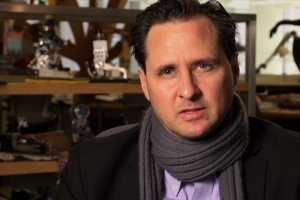
Hugh Herr
Bionics Engineer
Hugh Herr leads the Biomechatronics group at MIT Media Lab, focusing on assistive technologies that extend human capabilities. A double amputee, he holds 14 patents, including the Rheo Knee, an active ankle-foot orthosis, and the world’s first powered ankle-foot prosthesis, produced by his spinoff company, iWalk. His work merges muscle mechanics, neural control, and biomechanics to enhance rehabilitation for limb loss and augment physical abilities. Notably, his computer-controlled knee and robotic ankle-foot prosthesis were recognized by TIME magazine in 2004 and 2007, respectively. Herr has received prestigious awards, including the Heinz Award for Technology and a $7.2 million grant for biohybrid limbs from the VA. He earned degrees from Millersville University, MIT, and Harvard.
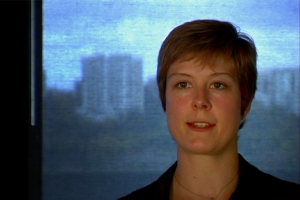
Cressida Heyes
Professor in Philosophy of Gender and Sexuality
Born in 1970 in Lancashire, Cressida Heyes was educated at Banbury Comprehensive School and the United World College of the Atlantic. Holding a BA (Hons) in Politics, Philosophy, and Economics from Oxford University, an MA in Political Science, and a PhD in Philosophy, both from McGill University, she is currently the Canada Research Chair in Philosophy of Gender and Sexuality at the University of Alberta in Edmonton. She worked briefly in the US as Assistant Professor of Philosophy at Michigan State University, before moving to the University of Alberta in 1999. She became a Canadian citizen in 2005 but still maintains active links with the UK, where all her family of origin–including her parents and her younger brother remain. She lives in Edmonton with her partner and son.
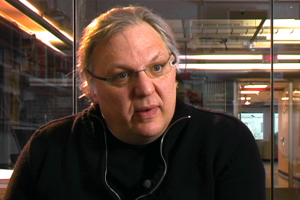
John Hockenberry
Journalist and Distinguished Fellow at MIT Media Lab
John Hockenberry is a three-time Peabody Award and four-time Emmy winner with over two decades of experience as a journalist and commentator. Previously, he anchored the public radio morning show The Takeaway on WNYC and PRI, and has reported globally across various media, including network, cable, and radio. Joining NBC as a correspondent for “Dateline NBC” in 1996, Hockenberry earned three Emmys, an Edward R. Murrow award, and a Casey Medal for his work. In 2009, President Obama appointed him to the White House Fellows Commission. Hockenberry is also an accomplished author, with works including “A River Out of Eden” and “Moving Violations,” a memoir that was a finalist for the National Book Critics Circle Award. He has contributed to major publications like The New York Times and The New Yorker.
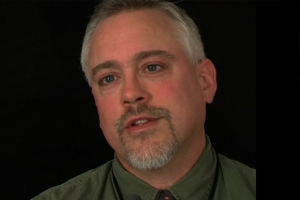
James Hughes
Executive Director of the Institute for Ethics and Emerging Technologies
James Hughes Ph.D., the Executive Director of the Institute for Ethics and Emerging Technologies, is a bioethicist and sociologist at Trinity College in Hartford Connecticut where he teaches health policy and serves as Director of Institutional Research and Planning. He holds a doctorate in sociology from the University of Chicago, where he also taught bioethics at the MacLean Center for Clinical Medical Ethics. Dr. Hughes is author of Citizen Cyborg: Why Democratic Societies Must Respond to the Redesigned Human of the Future , and is working on a second book tentatively titled Cyborg Buddha.
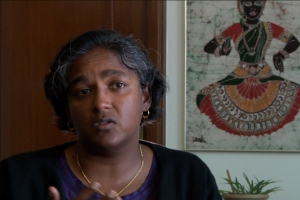
Sujatha Jesudason
Reproductive Rights Advocate
Sujatha Jesudason, Ph.D. is the Director of the CoreAlign Initiative at the University of California, San Francisco, a 30-year “think and do tank” strategizing to win resources, rights and respect for all women’s reproductive decision-making. Before this, Sujatha was the founder of Generations Ahead, a social justice advocacy organization working on genetic technologies. From examining the fault lines in efforts to curtail sex selection to exposing attempts to pit reproductive rights against disability rights, Sujatha works to forge unlikely collaborations and look past forced simplifications. A leading voice on the ethics of genetic innovations, women’s rights, racial justice and movement building, Sujatha holds a doctorate in sociology from the University of California, Berkeley.
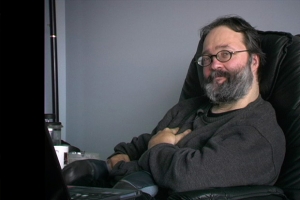
Gregor Wolbring
Biochemist & Ability Studies Scholar
Dr. Gregor Wolbring is a ability studies scholar, biochemist and activist who writes, researches and speaks around the world on the social, ethical, legal, economic, environmental, cultural and governance issues of new, emerging and converging sciences and technologies (S&T) impact of S&T on marginalized populations especially disabled people. He is originally from Germany, but has been based at the University of Calgary for 21 years where he is Associate Professor in the Faculty of Medicine in Community Rehabilitation and Disability Studies. He has various academic appointments such as Visiting Professor of Ability Expectation and Ableism Studies, American University of Sovereign Nations (AUSN) USA; Fellow at the Institute for Science, Policy and Society, University of Ottawa, Canada; Adjunct Associate Professor, Faculty of Critical Disability Studies, York. He was the President of the Canadian Disability Studies Association and is a current board member of the Society for Disability Studies (USA).
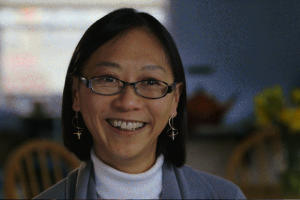
Silvia Yee
Disability Rights Attorney
Silvia Yee is DREDF’s first International Law Fellow and is also active in DREDF’s domestic national litigation and policy areas. She has worked in private commercial practice, and with the Health Law Institute at the University of Alberta in Canada, where she published on the topics of Canadian Health Care Standards and the extent of the nursing profession’s legal authority. She received her LL.B. from the University of Alberta, and clerked with the Honorable Justice William Stevenson at the Alberta Court of Appeal. Yee came to the United States to pursue graduate studies in musicology at the University of California, Berkeley after receiving her B.Mus. and M.A. at the University of Alberta, and first became involved with DREDF during preparations for the Principles to Practice Symposium held in October, 2000. She is particularly interested in issues raised by the comparison of different models of equality and justice underlying disability anti-discrimination laws, and in the applicability to disability discrimination of historically evolving social-psychological theories of prejudice.